Wood floors are a smart investment that can add elegance and style to any room in your home. Compared to carpet, wood floors are easier to clean and maintain than carpeting. However, it does take same time and effort to care for wood flooring. 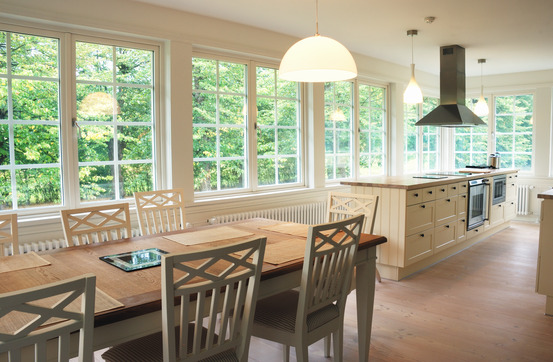 Proper maintenance of wood floors also takes some knowledge of the dos and don’ts of caring for them.
Proper maintenance of wood floors also takes some knowledge of the dos and don’ts of caring for them.
Here are 10 things you should never do to a wood floor:
- Never use harsh chemicals on your floor. You shouldn’t use vinegar, oil soap, or any type of wax or silicone-based products.
- Refrain from using casters directly on the floor. These can wear down the floor in isolated areas, creating the need for frequent refinishing.
- Don’t use a steam mop to clean. Water in any form can break down the floor’s protective layer.
- Don’t pour cleaner and spread it on the floor. Products that are applied too much in certain spots can absorb into wood and cause an uneven look over time.
- Don’t let too much time go by between refinishing. Eventually, any floor will show wear, and then it’s time to re-coat. This should usually be done every four years or so.
- Never wear high heels on your wood flooring. They can cause denting and scratching, so leave them at the door.
- Don’t forget to protect your furniture’s legs. You should use protective pads under the legs of all furniture that touches your floor to control the damage on the finish.
- Refrain from dragging heavy items on the wood floors. Make use of felt pads when moving furniture or heavy appliances over your flooring.
- Don’t let pet stains set. Be sure to treat pet accidents right away in order to ensure proper removal of the odor and stain.
- Never let your dog’s nails go untrimmed. Believe it or not, they will ruin the finish of a hardwood floor when nails are long.

For all of your Denver Hardwood Flooring needs visit our site today.
 If you’re looking for flooring for a flood-prone room in your home, don’t despair, because you do have options. Most flooding issues take place in the basements of people’s homes, but moisture can be a problem in any room of the house.
If you’re looking for flooring for a flood-prone room in your home, don’t despair, because you do have options. Most flooding issues take place in the basements of people’s homes, but moisture can be a problem in any room of the house. What is cork flooring?
What is cork flooring?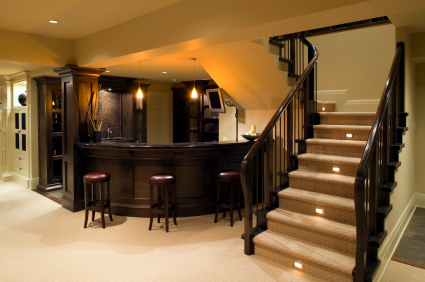 inishing a basement may sound as easy as adding some flooring and furniture. However, you must remember that your basement is underground, which could pose some problems. When choosing flooring for your basement, keep the following tips in mind.
inishing a basement may sound as easy as adding some flooring and furniture. However, you must remember that your basement is underground, which could pose some problems. When choosing flooring for your basement, keep the following tips in mind.

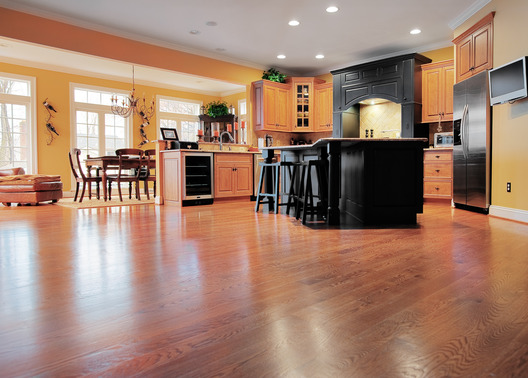 When you’re ready to upgrade to wood and change the look and feel of your home throughout, simply deicding on “wood” isn’t your stopping point. In fact, its just the beginning.
When you’re ready to upgrade to wood and change the look and feel of your home throughout, simply deicding on “wood” isn’t your stopping point. In fact, its just the beginning.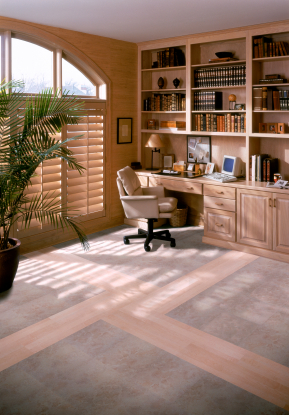 For homeowners who take pride in a green lifestyle and sustainable living, wool is the perfect choice for carpet and rugs. Along with a variety of styles and patterns, you can choose from various sizes of wool carpeting to fit a small area of your home or an entire room. Let’s take a look at some of the benefits of wool carpets:
For homeowners who take pride in a green lifestyle and sustainable living, wool is the perfect choice for carpet and rugs. Along with a variety of styles and patterns, you can choose from various sizes of wool carpeting to fit a small area of your home or an entire room. Let’s take a look at some of the benefits of wool carpets: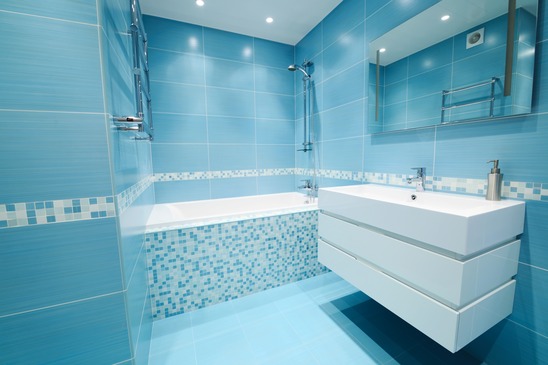 And while most people know the benefits of using tile simply through use, there may be a few things you never knew about tiles – a few things that may make them the “flooring of choice” as you are considering your flooring options in the future.
And while most people know the benefits of using tile simply through use, there may be a few things you never knew about tiles – a few things that may make them the “flooring of choice” as you are considering your flooring options in the future.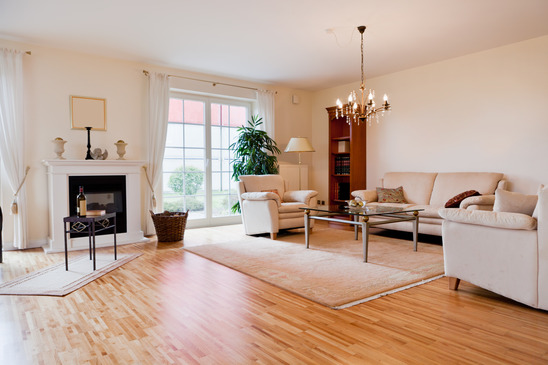 In many ways, it’s the environment and the lifestyle that impacts flooring decisions.
In many ways, it’s the environment and the lifestyle that impacts flooring decisions.